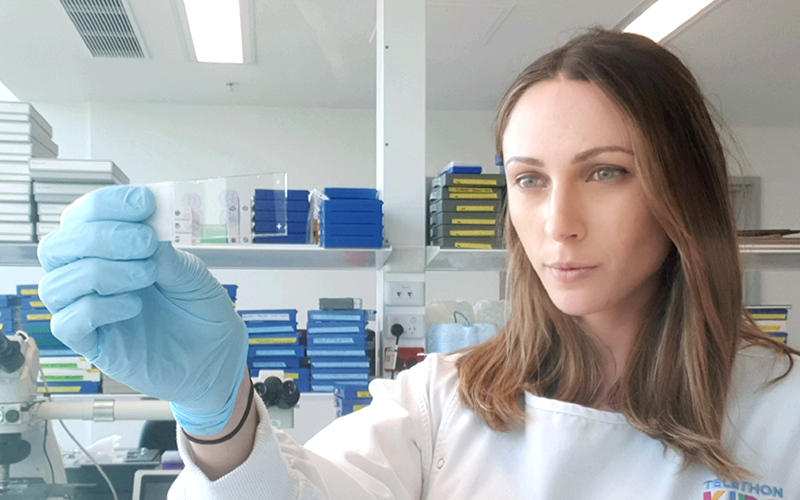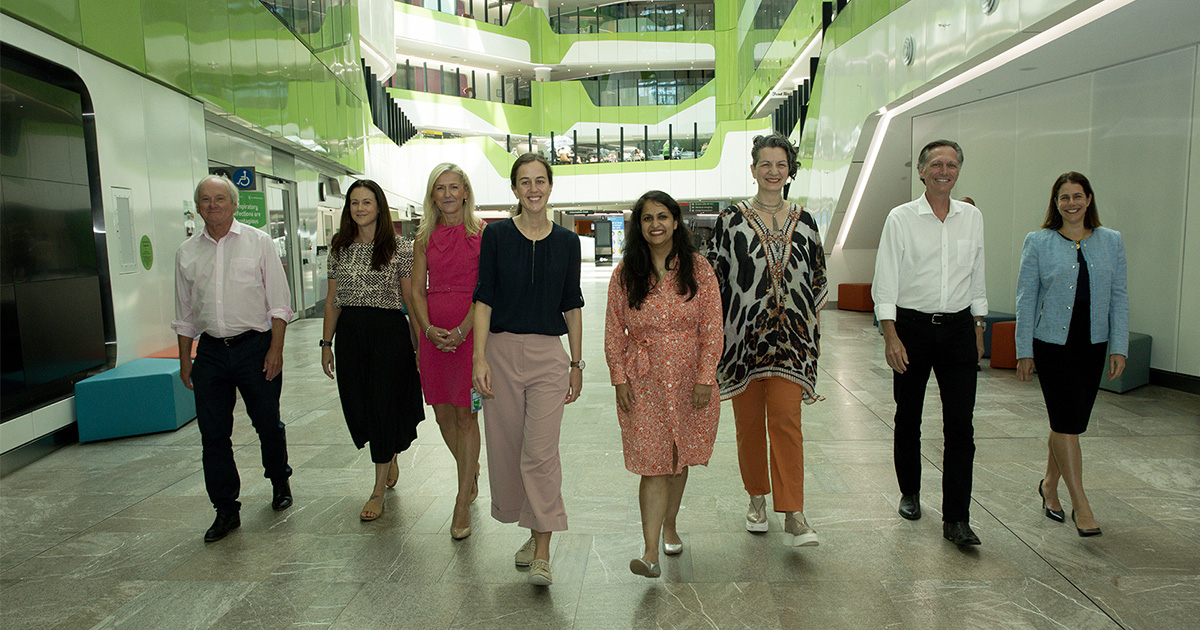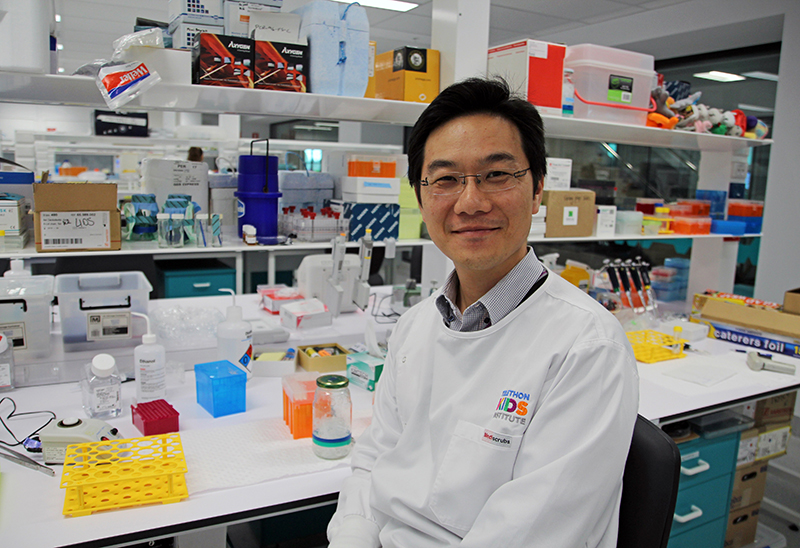Search
Research
Assessment of Cannabidiol and Delta9-Tetrahydrocannabiol in Mouse Models of Medulloblastoma and EpendymomaChildren with medulloblastoma and ependymoma are treated with a multidisciplinary approach that incorporates surgery, radiotherapy, and chemotherapy; however, overall survival rates for patients with high-risk disease remain unsatisfactory. Data indicate that plant-derived cannabinoids are effective against adult glioblastoma; however, preclinical evidence supporting their use in pediatric brain cancers is lacking. Here we investigated the potential role for Δ9-tetrahydrocannabinol (THC) and cannabidiol (CBD) in medulloblastoma and ependymoma. Dose-dependent cytotoxicity of medulloblastoma and ependymoma cells was induced by THC and CBD in vitro, and a synergistic reduction in viability was observed when both drugs were combined.

News & Events
Cancer researcher to use Forrest Fellowship to tackle high rates of relapse after sarcoma surgeryA The Kids Research Institute Australia researcher aiming to reduce the high rate of relapse in children after cancer surgery has won a prestigious post-doctoral fellowship from the Forrest Foundation.

News & Events
PhD pathway program ensuring bright future for clinical research in WATwo outstanding Perth Children’s Hospital clinicians will be supported to pursue a career in medical research, paving the way for more clinician-scientists in Western Australia.
Research
Temporally restricted activation of IFNβ signaling determines response to immune checkpoint therapyThe biological determinants of the response to immune checkpoint blockade (ICB) in cancer remain incompletely understood. Little is known about dynamic biological events that underpin therapeutic efficacy due to the inability to frequently sample tumours in patients.
Research
CD4+ T cells drive an inflammatory, TNF-α/IFN-rich tumor microenvironment responsive to chemotherapyWhile chemotherapy remains the first-line treatment for many cancers, it is still unclear what distinguishes responders from non-responders. Here, we characterize the chemotherapy-responsive tumor microenvironment in mice, using RNA sequencing on tumors before and after cyclophosphamide, and compare the gene expression profiles of responders with progressors.

News & Events
Working to end childhood cancer: A father’s storyDr Laurence Cheung is doing everything he can to end the threat of childhood leukemia. His research has the potential to change countless lives, but he also has another important job – being a dad to three beautiful children.
Research
The Combination of Curaxin CBL0137 and Histone Deacetylase Inhibitor Panobinostat Delays KMT2A-Rearranged Leukemia ProgressionRearrangements of the Mixed Lineage Leukemia (MLL/KMT2A) gene are present in approximately 10% of acute leukemias and characteristically define disease with poor outcome.
Research
Multi-omics analysis defines highly refractory RAS burdened immature subgroup of infant acute lymphoblastic leukemiaKMT2A-rearranged infant acute lymphoblastic leukemia (ALL) represents the most refractory type of childhood leukemia. To uncover the molecular heterogeneity of this disease, we perform RNA sequencing, methylation array analysis, whole exome and targeted deep sequencing on 84 infants with KMT2A-rearranged leukemia.
Research
Stepwise GATA1 and SMC3 mutations alter megakaryocyte differentiation in a Down syndrome leukemia modelAcute megakaryoblastic leukemia of Down syndrome (DS-AMKL) is a model of clonal evolution from a preleukemic transient myeloproliferative disorder requiring both a trisomy 21 (T21) and a GATA1s mutation to a leukemia driven by additional driver mutations.
Research
Temporal changes in childhood cancer incidence and survival by stage at diagnosis in Australia, 2000–2017The Toronto Paediatric Cancer Stage Guidelines are a compendium of staging systems developed to facilitate collection of consistent and comparable data on stage at diagnosis for childhood cancers by cancer registries.
